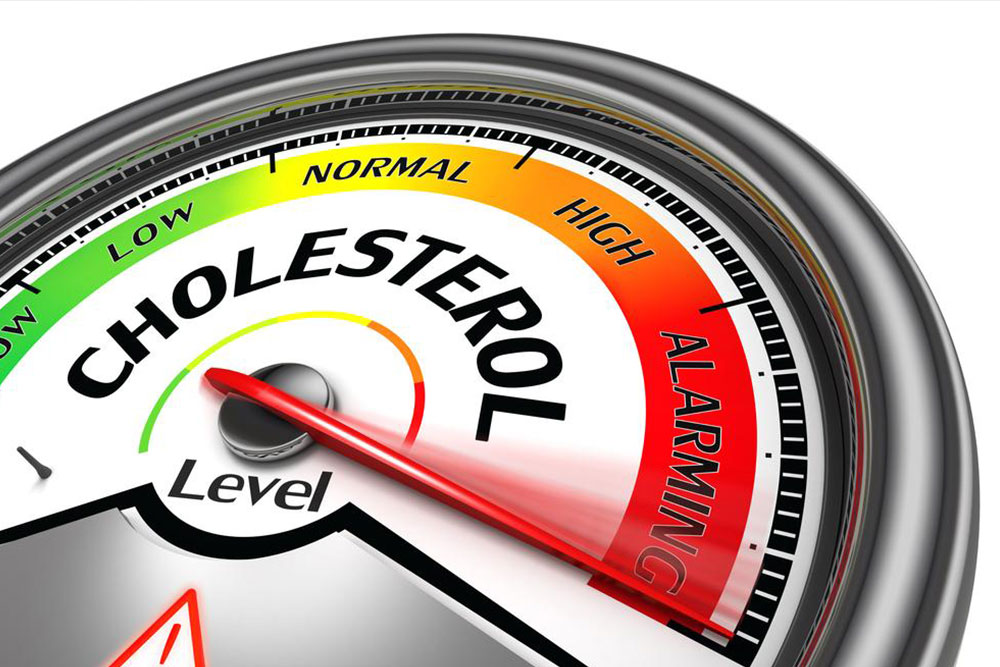Comprehensive Guide to Managing and Lowering Cholesterol Effectively
This comprehensive guide offers effective strategies for managing and lowering cholesterol levels naturally and medically. It covers testing methods, risk factors, dietary tips, supplements, lifestyle changes, and medical options, helping you adopt a holistic approach to heart health and prevent cardiovascular diseases.

Comprehensive Guide to Managing and Lowering Cholesterol Effectively
Maintaining healthy cholesterol levels is vital for cardiovascular health and overall well-being. Cholesterol, a waxy substance found in your blood, is essential for building cells and producing hormones. However, an imbalance—particularly high low-density lipoprotein (LDL) or "bad" cholesterol—can lead to serious health problems such as heart disease and stroke. Understanding how to effectively manage and reduce cholesterol is a key aspect of preventive health. This comprehensive guide covers everything from testing procedures and identifying risk factors to natural remedies, dietary adjustments, supplements, and medical options, providing you with actionable strategies to achieve optimal cholesterol levels.
Knowledge is power when it comes to managing cholesterol. Regular testing and understanding your risk factors enable you to take proactive steps toward better health. In this article, we delve into the importance of cholesterol testing, common signs of high cholesterol, practical methods for lowering LDL levels, lifestyle modifications, dietary tips, and the role of supplements and medications. Whether you are at a higher risk due to lifestyle or genetic factors, or simply want to maintain healthy levels as a preventive measure, this guide offers comprehensive insights and practical advice for everyone.
Understanding Cholesterol and Its Impact on Health
Cholesterol is a fatty substance produced naturally by your body and obtained through certain foods. It plays a crucial role in maintaining cell membranes, hormone synthesis, and vitamin D production. However, having too much cholesterol, especially LDL cholesterol, can cause fatty deposits in your arteries, narrowing them and increasing the risk of heart attack and stroke. Conversely, high-density lipoprotein (HDL) cholesterol helps remove excess cholesterol from the bloodstream, offering a protective effect. Striking the right balance among these types is essential for cardiovascular health.
The Significance of Regular Cholesterol Testing
Many people are unaware they have high cholesterol because it rarely causes noticeable symptoms. Regular cholesterol testing is the only way to accurately assess your levels and determine whether intervention is necessary. The most common method to evaluate your lipid profile is through a blood test called a lipoprotein analysis. This test measures LDL, HDL, total cholesterol, and triglycerides, providing a comprehensive overview of your cardiovascular risk.
Preparation for testing usually involves fasting for 9 to 12 hours to ensure accurate results. During the test, a blood sample is collected from your arm or finger. The results will help your healthcare provider guide you on the appropriate lifestyle changes, medications, or supplements needed to manage your cholesterol effectively.
Identifying Risk Factors for Elevated LDL Cholesterol
High LDL cholesterol often exhibits no overt symptoms, making regular screening crucial. Nevertheless, certain risk factors significantly increase the likelihood of elevated cholesterol levels and subsequent cardiovascular diseases. Recognizing these can help prompt early intervention:
Unhealthy diet rich in fast foods, trans fats, sugary drinks, processed snacks, and fried foods
Obesity or excessive fat around the waist
Sedentary lifestyle with minimal physical activity
Smoking and tobacco use
Heavy alcohol consumption
Existing health conditions such as diabetes, metabolic syndrome, or hypothyroidism
Family history of high cholesterol or cardiovascular disease
Effective and Natural Strategies to Lower Cholesterol Quickly
While lifestyle changes form the foundation for managing cholesterol levels, some individuals seek additional methods for rapid results. Natural remedies, dietary modifications, and supplements can complement medical treatment or serve as primary strategies for lowering LDL cholesterol.
Dietary Adjustments: Focus on eating foods that naturally lower cholesterol, including oats, barley, legumes, nuts, seeds, fruits, vegetables, and fatty fish rich in omega-3 fatty acids like salmon, mackerel, and sardines.
Reduce Intake of Harmful Fats: Limit trans fats found in margarine, baked goods, and fried foods. Cut back on saturated fats present in red meats, full-fat dairy, and processed foods.
Increase Soluble Fiber: Incorporate soluble fiber sources such as psyllium husk, oats, beans, and lentils, which can bind cholesterol in the digestive system and help remove it from the body.
Utilizing Supplements and Natural Products
Supplements can be an efficient way to support cholesterol management, especially when combined with a healthy diet and lifestyle. Always consult a healthcare professional before starting any supplement program.
Fish Oil: Rich in omega-3 fatty acids, fish oil helps reduce triglycerides and can improve overall lipid profile.
Psyllium Fiber: Taking fiber supplements like psyllium can significantly lower LDL cholesterol and triglycerides. It is particularly beneficial for diabetics and those with metabolic syndrome.
Soy Protein: Soy-based products such as soy milk, tofu, and edamame provide a plant-based alternative to animal proteins and are proven to reduce LDL cholesterol.
Medical Options for Cholesterol Management
For individuals with significantly elevated LDL levels or those with existing cardiovascular disease, medication may be necessary. Statins are the most commonly prescribed drugs to lower cholesterol, but other options include bile acid sequestrants, niacin, fibrates, and PCSK9 inhibitors. Your healthcare provider will determine the most appropriate therapy based on your health profile.
Key Do's and Don'ts for Maintaining Healthy Cholesterol Levels
Adopt a balanced diet emphasizing natural, cholesterol-lowering foods.
Limit intake of saturated and trans fats.
Engage in regular physical activity—aim for at least 150 minutes of moderate exercise weekly.
Avoid smoking and reduce alcohol consumption.
Monitor your cholesterol levels regularly, especially if you have risk factors.
Discuss supplementation and medication options with your healthcare provider.
Maintain a healthy weight through a combination of diet and exercise.
Managing cholesterol is a multifaceted process that involves dietary habits, lifestyle choices, regular health screenings, and possibly medications or supplements. By understanding your risk factors and taking proactive steps, you can significantly reduce your risk of cardiovascular diseases and enjoy better health. Remember, consistency and consultation with healthcare professionals are key elements to achieving and maintaining optimal cholesterol levels.





